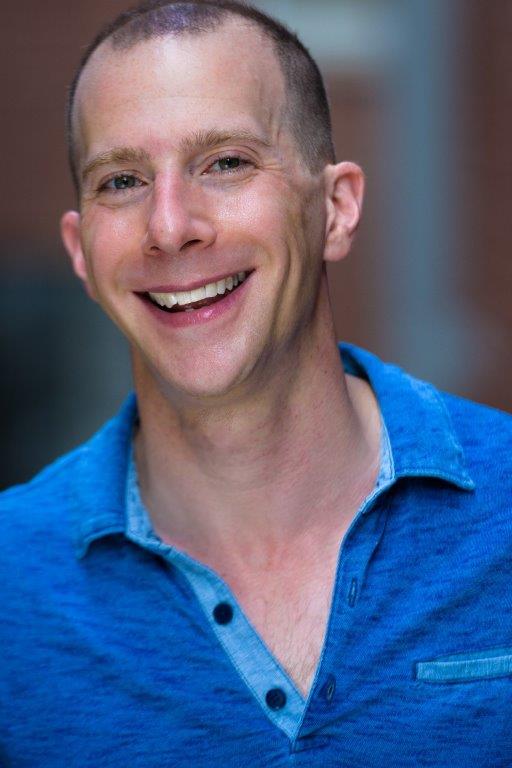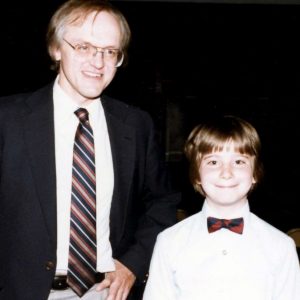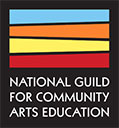Charlie Alterman
Charlie Alterman studied at Hoff-Barthelson from 1979-1993. He is a 1997 graduate of Brown University. During his career, Charlie has served as Music Director for the Broadway productions of Next to Normal and Godspell, the National Tour of Charlie and the Chocolate Factory, and the 2013 Tony Award winning revival of Pippin as well as Associate Conductor for Legally Blonde on Broadway. His credits include additional national tours, off-Broadway and major regional productions, as well as concert appearances with artists including Brooke Shields, Frankie Avalon, Billy Porter, and others.
Tell us about yourself. What are you early musical memories?

I was born in 1975 and grew up in the Greenacres neighborhood of Scarsdale with my sister Deborah and parents Karen and Norman Alterman. Music has always been a part of my life. I took Eurhythmics at Hoff-Barthelson with Ruth Alperson as the instructor. Mom and I would sit on the floor clapping out rhythms with Ruth, quarter notes, eighth notes, and so on. When I was four years old, my sister Deb – who is three years older and was studying piano at the time – had a make-up lesson at our home. I remember being insanely jealous of her, and undoubtedly threw a huge temper tantrum about why she gets to do this and I don’t. The teacher, Zirka Sochan, offered to give me a mini-lesson too and I was hooked. My dad likes to tell stories about how I transposed music in my head and plunked out melodies from the radio at age five. Since I started piano lessons when I was 4, I learned to read music at the same time I was learning to read words. So, in a way, reading music to me has always felt fundamental. Like reading a book, just in a different language.
Can you share a little about your experience at Hoff-Barthelson?
I studied at Hoff-Barthelson from the age of four until I graduated from high school. Zirka Sochan, who gave me that first impromptu lesson, became my piano teacher. I went through the entire Suzuki piano curriculum with her during elementary school. In middle school, I studied piano with Glen Kirchoff. He took me to the next level in classical repertoire, but I confess that at home I mostly spent my time at the piano playing Billy Joel, Joni Mitchell, and show tunes. I played for hours a day but I was becoming a slacker when it came to practicing for my lessons. During high school I studied with Bohdan Sochan who was Zirka’s brother and a jazz teacher at Hoff-Barthelson. Through Bodhan, I learned how to read lead sheets, chord extensions and improvise in general. I also played in ensembles under his leadership, which was a great learning experience as well. Even though I had played in bands and orchestras, the jazz combos were a different kind of musical interaction. In a way, my work with Bohdan became the perfect training for what I do now as a Music Director, balancing different musical styles, playing with bands of varying sizes, and bridging the gap between arranging and honoring what’s on the page.
Along with piano, I also studied recorder and then clarinet with Carl Hane, a woodwind teacher at Hoff-Barthelson. When I was eight years old, I played recorder in a PepsiCo Summer Festival production of Benjamin Britten’s one act opera “Noye’s Fludde” at SUNY Purchase. It had a sizeable recorder section and I suspect they asked Carl to help find additional players of this “niche” instrument. So, the section was peppered with his star students, while the bulk of the orchestra were adults. It was slightly surreal, but also an amazing experience. Learning these woodwind instruments gave me additional perspective into music, through the opportunity to play in bands and orchestras. But ultimately, I gave up the clarinet in high school because I was too busy with piano, playing in a rock band, and acting and music directing for shows at Scarsdale High School.
In addition to my teachers at Hoff-Barthelson, Trudy Moses (the music teacher at Greenacres School) and Connie Rybak Shelengian (who brought me on board to assist her as Music Director for my first show at Scarsdale High School) were big influences on my musical development.
What made your Hoff-Barthelson experience special?
At Hoff-Barthelson, I realized that music wasn’t just “me and my piano.” My friends who took lessons with private teachers had maybe one recital a year and rarely interacted with other music students, but Hoff-Barthelson was a community of musicians. Because everything was in one building, you could walk down the hall and hear everyone else play and eavesdrop on the unparalleled teachers. Even at a young age, you saw that you were part of a larger world of music and could think about where you might fit into that world.
Hoff-Barthelson really prepared me to segue into becoming a music director. Hoff-Barthelson nurtured an awareness that there are a lot of things happening at once in music. It helped me see the big picture while taking care of the details.
I also loved having so many performance opportunities. We had so many opportunities to play in front of an audience that eventually the performance anxiety of recitals was not daunting. There was also punch and cookies at the end of every recital, so it felt like a party every time. The recitals really fostered a sense of community at the school.
When did you know that you wanted to pursue a professional career in music? How did Hoff-Barthelson prepare you for this journey? What was your next phase of school after Hoff-Barthelson?
On a gut level, I think I knew at age three or four that music was a thing that was fundamentally important to me.

By high school I thought I wanted a career in the arts, but I wasn’t sure I would be good enough. I had a huge passion for acting as well as music. I thought I might want to be a TV or movie actor, or play keyboards and sing backup for a rock star. My ambitious were all over the place, even though I knew they were in the arts.
I fell into music directing freshman year of high school. They didn’t cast me in a production of “Little Shop of Horrors,” because it was a small cast and I was only a freshman. But they knew I played piano and wanted me to be involved, so they asked if I would be interested in assisting the music director. It ended up changing my life, because I realized I had a passion for something I didn’t really know existed at the time. From that point forward, I split my time between acting in shows and music directing them.
I chose to go to a liberal arts school, Brown University, rather than a conservatory because I still wasn’t ready to commit to a career in music. In my gut I knew I wanted to pursue it, but I thought I should still get a solid, widespread education. My major in American Civilization allowed me to take classes in music and theater, since it was a fairly wide open major. You could focus on anything you wanted to study, so long as you were studying something about the American experience. Brown ended up being the best thing ever for me. It taught me incredible ways to research, think, and problem solve – but it also ended up being a great place to hone my music directing skills. If I had gone to a conservatory, I would have been one of many students on a similar path, and probably would have had to wait until senior year to finally music direct one show. At Brown, I was the only one there with my skill set, so by the time I graduated I had music directed six shows.
Can you talk a bit about your professional career?
I have been active as a professional music director for about 22 years. I handle everything that touches music in a production. I work as a teacher (for cast vocals), conductor, pianist, vocal coach, manager, and generally act as an interface between the music and all the other departments of a show. I have to be an “English to English” translator, talking to the composer, orchestrator, choreographer, director, music copyists, musicians, actors and stage crew in terms they’ll understand, and somehow make it all come together in a way that fulfills everyone’s vision and moves the audience.
Just like there was so much going on musically at Hoff-Barthelson growing up, there is a lot going on in a show. I think being exposed to so many forms of music, so many instruments, and so many performances at Hoff-Barthelson and in the Scarsdale Schools inspired versatility and big picture thinking. In my job I have to know not just what’s going on with the music, but what the music is doing in the context of the show. If I had just had one piano teacher, my ability to juggle the musical needs of many people might have been tougher to come by.
The world of musical theater hasn’t changed much during my career. There have certainly been technology advancements and shifting musical styles, but musicals are still substantially the same at their core as they were in the 1950s. It’s amazing to me that, as the world shifts to a culture of disposable entertainment where everything is packaged into short sound bites, musical theater and Broadway are thriving. Broadway theaters which were once empty now have 3 shows in line to come into them. I think Broadway has become the cultural backlash to what I’m calling the “disposable culture,” They may not realize it consciously, but audiences really crave the live experience. Live entertainment, is one place that when the curtains are drawn and the lights go dark, we have to put down our phones, get immersed in the story and not be interrupted with texts, email, or social media.
As a professional, what advice can you give Hoff-Barthelson students who are looking to pursue careers in musical theater/Broadway?
I always preface any advice about the business by saying this: if you think can do something else and be happy with your life, do that. The industry can be tough, and if you’re at all on the fence about it, it will probably beat you down and make you give up. But if you know in your soul that it’s what you have to do, then you need to honor that. Because that means you won’t give up. I do think that, whatever your field or interest, you need to do what you’re passionate about. Because at the end of the day, in any industry, it’s the people who have a need and a hunger and a passion about their work that will go the extra mile; that will stay late until the work is done; that will keep revising and redoing their work until they feel like it’s something they’re proud of; and those will always be the people that are the most successful. The ones that WANT to work hard. No matter how hard you work at any job, if your only goal is to do well and make your paycheck, you will never be the one that’s remembered as the best at what you do. It’s the people who have a passion to be their best that will be the best. So, you have to follow your passion!


 Developing potential, enriching lives and creating community since 1944
Developing potential, enriching lives and creating community since 1944 








